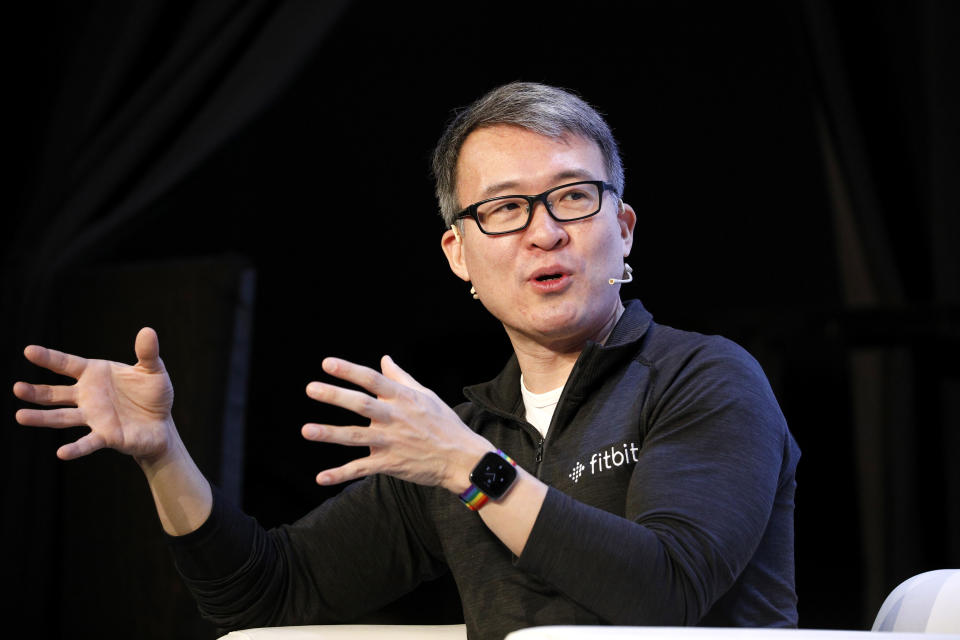Why Google and Fitbit could make for a potent pairing
Google's parent company Alphabet is reportedly working to acquire Fitbit. According to Reuters, Alphabet put in a bid to purchase the fitness tracker company, which would give the Google parent a foothold in the smartwatch and wearable market, where it has failed to break through to mainstream consumers.
According to IDC research director Ramon Llamas, a tie-up with Google could give Fitbit access to significant financial backing and engineering expertise from Alphabet.
"This isn't the first time that this has come up," Llamas said. "When you're in a position like these two companies, there seem to be some synergies that should be realized."
When asked about the potential deal, a Fitbit spokesperson said the company doesn't comment on rumors or speculation. Google didn't return a request for comment at the time this article was published.
Google's smartwatch market share is virtually nonexistent
Google was one of the first big-name players to jump into the smartwatch space with its Android Wear operating system. The company has since rebranded its wearable operating system to WearOS, but its market share is negligible at best.
The Fossil Group, which is the company that uses WearOS the most, saw its global share of the smartwatch market fall from 3.2% in Q1 2018 to 2.5% Q1 2019, according to Counterpoint Research. Fitbit, on the other hand, saw its share rise from 3.7% in Q1 2018 to 5.5% in Q1 2019.

Canalys, meanwhile, pegs Fossil Group's share of the North American wearables market at 4.1% as of Q2 2019, while Fitbit topped out at 24.1%. No matter how you slice it, Google is just a bit player in the wearables space.
But Fitbit has had issues of its own, namely Apple. The Apple Watch maker dominates both the domestic and global smartwatch market. And while Fitbit was once able to undercut Apple's pricing, the Cupertino-based company's decision to lower the price of its Apple Watch Series 3 to $199 puts it on the same pricing level as Fitbit's new Versa 2.
For Google, adding Fitbit could be a boon to its fitness tracking efforts.
"Google WearOS and Android Wear has been one of the first smartwatch platforms around, however, its health and fitness components have lagged behind," Llamas explained. "And despite some updates and injection of talent, the health and fitness part hasn't moved significantly."
Adding Fitbit's fitness tracking and hardware capabilities to Google, however, could reverse the search giant's fortunes in the wearables space.
Fitbit isn't just a hardware manufacturer
For most consumers, Fitbit is best known for its fitness trackers and smartwatches, but the company has been steadily pushing into the software market. It has inked deals with insurance providers to help subscribers improve their health, and recently announced a partnership with Bristol-Myers Squibb and Pfizer to develop technologies to detect atrial fibrillation within users.
In August, Fitbit debuted its Fitbit Premium subscription service, which provides subscribers with customized fitness and health guides based on their goals. Available for $9.99 per month or $79.99 for a full year, Fitbit Premium is being positioned. as a key differentiator for the company compared to Apple, which doesn't offer such a custom service.
Google, on the other hand, may be able to leverage Fitbit's efforts to build on its own health initiatives including its Google Fit service.
More from Dan:
Google's Pixelbook Go is a great Chromebook — if you can get past its price
Microsoft beats on revenue, earnings on strength of cloud business
Got a tip? Email Daniel Howley at dhowley@yahoofinance.com, and follow him on Twitter at @DanielHowley.
Follow Yahoo Finance on Twitter, Facebook, Instagram, Flipboard, SmartNews, LinkedIn,YouTube, and reddit.

 Yahoo Finance
Yahoo Finance 
